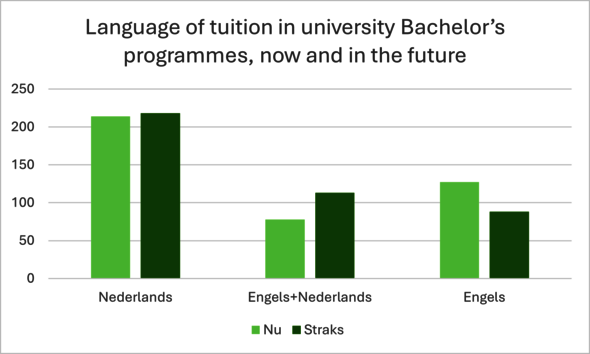The introduction of a Dutch-taught variant will affect many Bachelor’s programmes in Economics as well as Science and Technology in particular, according to details of the plans published by university association UNL on its website.
Anticipation
Universities want to decide for themselves what is the appropriate action to take when it comes to internationalisation and the influx of international students. This is in anticipation of a bill that Education Minister Robbert Dijkgraaf is currently drafting and which will shortly go to the House of Representatives.
Separate plans for each university have yet to be finalised, despite being requested by the House of Representatives. In addition, UNL is keen to exercise caution, given the fact that the universities’ representative advisory bodies have yet to signal their agreement.
Nonetheless, if all goes well, 12 Bachelor’s programmes in Economics that are currently taught entirely in English will get a Dutch-taught track, alongside the English-taught variant. Only seven of them will remain entirely English-taught.
Of the Bachelor’s programmes in Science and Technology, 13 have plans to introduce Dutch-taught tracks, leaving 16 Bachelor’s programmes being taught entirely in English.
Advantage
Bachelor’s programmes that are taught in two languages will enjoy a significant advantage in that they will be able to limit the influx of international students into the English-taught track, while accessibility to the Dutch-taught variant is ensured at all times.
The universities do indeed intend to introduce an enrolment quota of this type for the English-language track of 27 Bachelor’s programmes, of which 14 are in Behavioural & Social Sciences and 6 in Economics.
Universities together offer 419 Bachelor’s programmes in total. For just over half of them, Dutch is the language of tuition. In future, 88 Bachelor’s programmes will be taught entirely in English, compared to 127 in the current academic year. That is a decrease from 30% to 21%.



Discussion